Ready for some inspiring ideas for self-love growth that can change your mindet, ingrained beliefs, and even transform your lifestyle?

7 Ideas For Self-Love Growth That Is Exponential
If you are then you’ll love this information!
So in this blog post, we will explore various self-love growth ideas that will empower you to prioritize your well-being and wellness, nurture your inner worth, and embrace the beautiful essence of who you truly are.
By embracing these ideas, you’ll be choosing a transformative path towards fulfillment, and a deeper connection with yourself.
So decide now that you’ll bravely unlock the incredible potential of self-love and choose personal empowerment.
Let’s get started with our first idea for self-love growth.
Note: Although I am a Clinical Social Worker, engaging with this website does not establish a professional social worker-client relationship. The information provided here is for general purposes only and should not be considered professional advice. While we strive to ensure accuracy and reliability, this content is not a substitute for professional guidance. For specific concerns, issues, or situations, it is essential to consult a qualified professional and present your situation. Read the full Disclaimer here.
This post has affiliate links which means that we make a commission from qualifying purchases at no additional cost to you. For more information read our Affiliate disclosure.
SELF-LOVE IDEAS

#1 BECOME SKILLED IN SELF-COMPASSION, INCLUDING MORE COMPASSIONATE SELF-TALK
Self-compassion is a powerful practice that involves treating yourself with kindness, understanding, acceptance, and even forgiveness, especially during times of struggle, failure, or difficulty, as well as when you make mistakes or face setbacks and you’re highly critical of yourself, not allowing anything but perfection.
It is a gradual process that requires patience and practice, in which you need to be gentle with yourself and celebrate even the smallest steps towards more self-compassion.
Over time, you will cultivate a nurturing relationship with yourself that supports your well-being and helps you navigate life’s challenges with greater resilience and kindness.
One essential aspect of self-compassion is engaging in more compassionate self-talk.
It refers to the way we speak to ourselves internally, the thoughts and messages we convey, and the overall tone of our self-dialogue.
By cultivating a compassionate inner voice, we can enhance our well-being, resilience, and self-esteem.

I want to mention a few things of which you should be cognizant and aware concerning self-talk:
- Importance of recognizing self-critical thoughts, considering that we usually engage in negative self-talk without even realizing it. So paying attention to the content and tone of our inner voice can help us identify instances of self-judgment, self-blame, or self-deprecation.
- Focus on cultivating more self-compassionate thoughts and beginning to counteract them with self-compassionate thoughts. (Like intentionally replacing very negative or harsh self-talk with more kind, supportive, and understanding messages.)
- Intend to be more friendly while relating to yourself so that you can open more space for empathy, encouragement, and reassurance.
- Use affirmations and positive statements and do it carefully – different powerful phrases that help challenge negative beliefs and reinforce positive self-perception you repeat are amazing, but the key is to find those you can start believing in and then start building from these or else you’ll be pressuring yourself because you can’t make progress like you want to.
- Be more mindful and notice negative self-talk arising, pause and observe it without judgment. (Remind yourself that your thoughts are not facts and that you have the power to respond to them with kindness and understanding.)
- Surrounding yourself with a network of people can contribute to more compassionate self-talk or a more negative one which means that you need to choose wisely. Additionally you can learn from those who are skilled, because they can teach you how to do it if you observe them or if they directly educate you on this.
Self-talk is closely related to the level of self-worth, so if this is a concern for you, since you are accustomed to harsh self-talk, check out a fee helpful resources designed to target self-worth problems:
Paid link: Self-Love Workbook for Women: Release Self-Doubt, Build Self-Compassion, and Embrace Who You Are (Self-Love Workbook and Journal)
Embrace who you are with this guided self-love book for women of any age and any background. You’ll embark on your journey of self-discovery by learning what self-love is, and then immersing yourself in exercises to help you build your self-esteem and improve or elevate your relationships.
This very successful self-Love workbook created by a fellow Megan Logan, LCSW is designed with a clear intention to empower women on their journey of self-discovery and self-love. So if you like my approach to self-love you’ll probably like this. Because as you’ll see that I always emphasize that to increase self-love we need some practice and consistency.
The self-love workbooks typically include exercises, prompts, and activities that encourage self-reflection, self-compassion, and self-care, in addition to practical tools and strategies for setting boundaries, managing stress and anxiety, and cultivating healthier habits.
By getting a self-love workbook, you’re benefiting from a valuable resource that can empower you to take control of your mental and emotional health, develop a more positive and compassionate relationship with yourself, and in the end, improve your overall well-being.
I’ve collected a few helpful Self-Love Workbooks in my post: The Best Self-Love Workbooks To Help You Finally Break Free From Self-judgement Through Self-Compassion And Self-Acceptance.
You may want to also check out alternatively (or combine the 2 workbooks):
Self-Love Workbook for Black Women: Empowering Exercises to Build Self-Compassion and Nurture Your True Self (Self-Love Workbook and Journal)
As an African American woman, juggling many roles can leave little time for self-care. With this in mind, here’s an empowering self-love and self-care workbook designed to help you prioritize your joy, healing, and growth, with affirmations and exercises that nurture your authentic self.
Embrace self-love, build inner peace, and cultivate confidence while exploring themes of self-compassion and community.
Paid link: SELF-LOVE JOURNAL FOR WOMEN: Prompts and Practices for Your Journey to Self-Worth, Self-Care, and Self-Acceptance (Workbook and Journal)
Self-love journals often include prompts for self-care activities and practices. By prioritizing self-care and making it a regular part of your routine, you can nurture your physical, emotional, and mental well-being.
This Self-Love journal includes prompts and practices for taking a path of self-worth, self-care, and self-acceptance.
Women everywhere encounter unrealistic societal expectations that lead to feelings of overwhelm and discontent with themselves. However, discovering the path to self-love and embracing our uniqueness can significantly alter our perspective on life, and this guided journal is designed for just that.
You may want to check out later:
#2 ENGAGE IN MEANINGFUL AND INTENTIONAL SELF-CARE ACTIVITIES
Self-care is a much broader concept than it’s usually presented.
Most often, you’ll see that self-care gets reduced (even banalized) to activities focused on getting the physical body to look prettier or feel smoother, which sometimes can be helpful but other times, if misunderstood, can even be detrimental to the overall “state” or status of self-love.
What I’m trying to say is that you need a clear intention when you’re engaging in self-caring activities, or you’ll end up doing things everyone else is doing just because, well… everyone else is doing them.
If the relaxing bath doesn’t really relax you, if some treatments you take don’t really bring peace of mind or educate you on self-soothing but rather create more anxiety because you’re competing with others on who will have more of these instead of practicing things that are indeed helpful for you specifically, then there’s not much use of these activities and they’re probably just a money-wasting trend.

You really need to focus on yourself first, not on others or how others will perceive you, to try to understand what it is that you need without trying to copy somebody else.
Especially because you don’t really know how intentional this person is.
Nor is what they are doing actually the thing they need in order to really care for themselves.
Do they even know?
Then how will you know?
Another thing you need to comprehend is that self-care is also about soul nourishment, self-soothing, personal growth, and much more.
That’s because we as human beings have more complex needs than just physical ones that are just basic, and come as a prerequisite for more delicate and subtle needs such as the need for self-actualization.
To be better humans, we have to evolve and move away from being stuck only on satisfying physical needs because this is a circle of unsatisfaction, even though for a short moment you may feel satisfied.
Long-term, we need to expand and focus on a more purposeful lifestyle.
Therefore, dedicate time each week for activities that nurture your mind, body, and soul. Even though it’s completely natural that some oversee the others, this is situational and dependent on life circumstances.
These activities can be walking, dinner with friends or family, education, personal growth, physical exercise, psychotherapy, even helpings others etc.
Basically it can be anything that’s focused on real, factual nurturing and expansion that also isn’t harmful to others, because don’t forget that some people will hurt others to meet their needs or achieve goals.
Here are some resources to help to structurize self-care and make it a habit:
Paid link: The 5-Minute Self-Care Journal for Women: Prompts, Practices, and Affirmations to Prioritize You
This journal offers quick and easy self-care practices to meet your needs amidst a busy life.
It stands out with 150 uplifting prompts promoting growth mindset, mindfulness, and positive intentions.
Spend just 5 minutes on self-love with its effortless questions, affirmations, and actions.
Plus, its user-friendly design makes reflection recording enjoyable.
Paid link: Self-Love Journal for Teen Girls: Prompts and Practices to Inspire Confidence and Celebrate You
If you’re a teen (or get this for your teen if you’re a parent) start the new year by encouraging yourself to embrace self-love and confidence.
The Self-Love Journal for Teen Girls offers affirmations, reflective prompts, and creative activities that can help you understand your emotions and celebrate your uniqueness.
With uplifting quotes and practical exercises, it’s a powerful tool for fostering self-awareness, self-worth, and self-care.
Paid link: A Year of Self-Care: Daily Practices and Inspiration for Caring for Yourself (A Year of Daily Reflections)
This is a 12-week anxiety and self care journal that will help you process what’s occupying your mind and gently re-frame your thoughts, so you can manage your worries before they get to spiral out of control. This could potentially help if you’re feeling anxious even to start self-exploration.
It was designed to meet you where you are and guide you to developing a practice of dedicating a few minutes a day to reflect on your thoughts, detect the sources of your anxiety, and prioritize your overall wellness and mental health. This is dedicating a few minutes to yourself you really need.
It has:
- Daily Journaling Pages
- Self-Care Ideas
- Therapy Reflections
- Emotional Support Cheat Sheet
- Fear-Setting Exercises
- Habit Trackers
- Monthly Progress
Paid link: SELF-CARE ACTIVITIES FOR WOMEN: 101 PRACTICAL WAYS TO SLOW DOWN AND RECONNECT WITH YOURSELF
Prioritizing well-being is crucial, especially for women who often/usually prioritize others.
“Self-Care Activities for Women” offers a variety of ways to relax and find joy, covering emotional, mental, physical, social, and professional care.
With 101 simple activities, from creating a joy playlist to cooking a healthy meal, this book encourages making time for ourselves and cultivating a habit of self-check-ins.
You may want to check out also:
#3 INVEST IN PERSONAL DEVELOPMENT
Investing in personal development is a powerful way to enhance self-love and foster personal growth.
This is oriented towards engaging in activities, practices, and resources that support self-improvement, self-awareness, and self-empowerment.
By dedicating time, effort, and money to personal development, you can:
- deepen your understanding of yourself,
- stepp outside of your comfort zone,
- expand skills and knowledge they way you intend, and
- enhance your sense of self-esteem and self-worth.
And by achieving personal milestones and witnessing your own progress can boost self-love by affirming your potential and inherent worthiness.
The key here is the fact that personal development:
- encourages introspection and self-reflection
- prompts you to examine your beliefs, values, and behaviors, and
- supports you in gaining a deeper understanding of who you are and what truly matters to you.
And this self-awareness is crucial for practicing self-love as it allows you to recognize and embrace your authentic self.

On top of this, personal development provides opportunities for continuous learning, growth, and expansion.
Immersing in personal development practices often involves identifying and challenging limiting beliefs that may hinder your self-love.
These beliefs can be deeply ingrained and may present themselves as self-doubt, self-criticism, or negative self-perceptions.
So through practices such as affirmational self-talk, cognitive restructuring, or working with a coach or therapist, you can transform these limiting beliefs into more empowering ones.
Investing in personal development often involves seeking out positive influences and surrounding yourself with like-minded individuals who uplift and inspire you.
By connecting with supportive communities, mentors, or coaches, you create a network of people who encourage your growth and reinforce your self-love journey.
Keep in mind that personal development is a unique and individualized process for all of us, therefore it’s important to choose practices and resources that resonate with you and align with your goals and values.
No matter if you choose self-help books, attend workshops or seminars, programs, psychotherapy, listen to podcasts, take courses, or pursue further education, investing in personal development offers a path of self-discovery, empowerment, and ultimately, deepens self-love.
Yoy may be interested to read also:
#4 PRIORITIZE SELF-REFLECTION SO THAT YOU GET TO KNOW YOURSELF BETTER
Self-reflection can become an automatic response like anything else in life you have learned to do, but it can take you awhile to get there.
Especially if you’re used to be reactive to the impulses from the environment and were doing things as expected only.
So take your time and continue practicing.
If you notice that you don’t know what you want and that this is so hard for you to define, just keep in mind that this is probably a defense mechanism as you feel unsafe doing so.
Because you, for example, are trying to not make mistakes as you believe mistakes point out that something isn’t right with you. Or you are trying to prevent failure by avoiding to clearly define what you want so that in case you fail you don’t feel like a failure.
As you can see this is about avoiding emotions, but at what cost? Isn’t it better to learn to self-soothe once you encounter unpleasant emotions?
So, it’s a good idea to engage in true self-reflecting practice regularly by taking time to reflect on your thoughts, emotions, senses, intuitition, and experiences.
Writing, journaling, meditating, or therapy can help you expand self-awareness and cultivate self-love.
You can prioritize self-reflection by setting aside dedicated time during a week to introspect and gain a deeper understanding of yourself and then this can become a regular thing for you like your many life routines.
If you’re serious to dive deep into self-exploration, create a quiet and comfortable space where you can relfect without distractions.
You can use different tools or resources for personal development and by focusing on any personal development area you can explore your wishes, needs, desires, aspirations, goal, etc related to that particular area.
During these self-reflection sessions, it’s important to ask yourself thought-provoking questions to delve deeper into your values, beliefs, and goals but also to focus on answering honestly (to the extent currently possible).

Don’t forget to explore your passions, interests, and aspirations, understand what truly resonates with your authentic self, acknowledge your strengths, weaker sides that you want or need to work ok, and areas for improvement.
It’s ok to reflect on your past actions, decisions, and patterns, seeking insights and lessons that can guide your future growth but without being too judgemental because if you turn it into very unpleasant experience or an unfriendly environment you’re risking dropping this exercise altogether.
Additionally, external guidance for self-reflection would be great because that way you get more structure and someone experienced to lead the way and point out priorities.
This could involve working with a mentor, teacher, coach, therapist, or counselor who can provide valuable insights and help you navigate your thoughts and emotions, by offering fresh perspectives and assist you expand self-awareness.
One very helpful resource for self-exploratory activities or self-discovery is a prompted journal. And if you need some recommendations, check my posts that feature them:
3 Biggest Mistakes With Self-acceptance
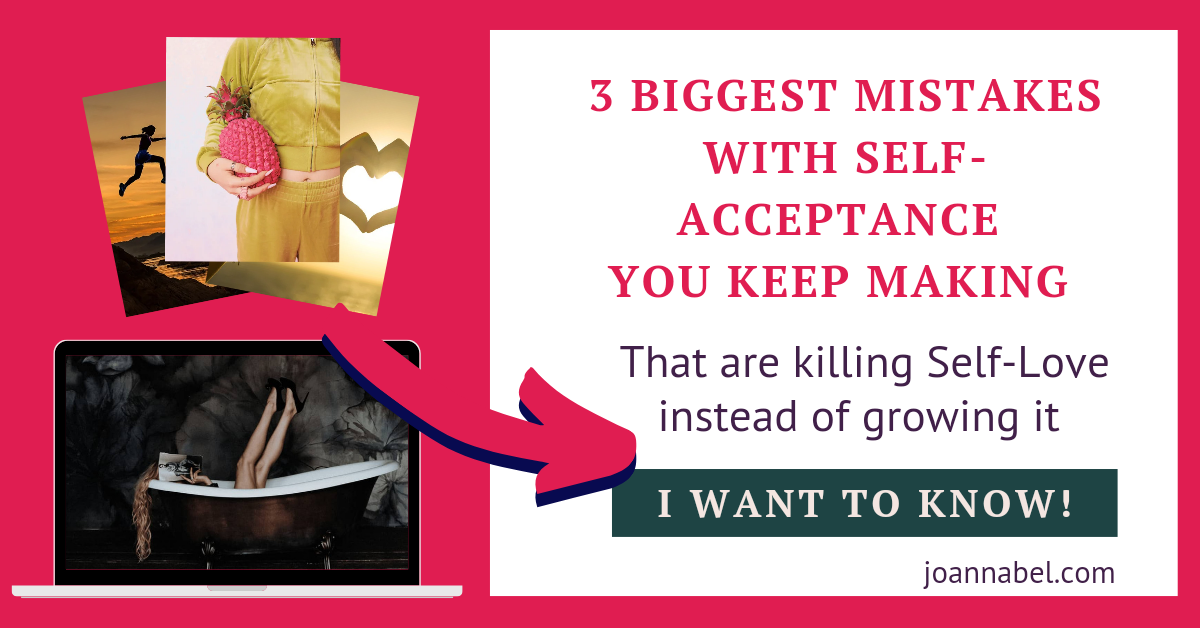
Self-reflection can allow you to make conscious choices aligned with your values and aspirations, leading to personal growth. After you’ve permitted yourself to put yourself first and not cave to social pressure or external expectations of what you should do in life that almost always have nothing to do with you.
That’s how you show you have love for yourself.
Plus, over time, as you know yourself better, you accept yourself more and more and get to appreciate who you are and love yourself for who you really are once you permitted yourself to get to know your true self.
If you want to learn about the signs you’ve started loving yourself, read my post that points out 5 signs that this has already taken place. Go to this post.
RELATED:
#5 EXERCISE SETTING BOUNDARIES
This is not something people with firm boundaries need to exercise; for them, it’s about bringing more flexibility into how they relate to others and expect to meet their needs.
So this is more people with too soft boundaries who have a hard time asking for things or who are pleasing others automatically so that they wouldn’t even be considered “bad”, “rude”, “naughty”, “aggressive”, etc.
As you know, this is social conditioning before anything else, and it starts in the family as a part of a wider community or society.
Because the same messages get across all these groups, regardless if it’s a family group or a group classified by gender in one society, they’re expected to act in a certain way.
Or anyone in one society if that society is, for instance, very autocratic and authoritarian, where anything we do “differently” is seen as potentially problematic.
And it is also about learning to say no to things (or individuals) that drain your energy or compromise your well-being.
Even giving up on things that have proven themselves to be lost causes or simply things that need to be accepted as they are without trying to deny that this is true or correct them
(Example: not being skilled enough to accept that something can be improved to only a certain extent or can’t be improved and leaving it at peace.)
Finding the right balance with setting boundaries can be crucial for self-love, as it will rely on self-respect that may be missing.
So a lack of self-respect and self-appreciation, which can be subtle at times, will affect boundary setting and even noticing that you are disrespected or not respected and treated like you deserve.
Now, regarding exercising this, I use the word exercise on purpose to signal to you that it’s ok to start small and build up from there. Considering this will be very uncomfortable for you at the beginning, but that’s alright because you’re on to something if you experience this as very challenging.
It means that you really need to do it!
Start by:
- understanding more about what you think and how you feel about certain demands or requests,
- slowly defining the answers you want to give, and
- then practicing assertively communicating your preference with a focus on finding consensus with others and not only compromising on things in life.
If you found the information on the blog helpful & inspirational and you feel like giving back, you can do it by clicking the donate button after entering amount you’re comfortable with. I’ll use it to create and deliver more useful content and resources like this. Thanks for your precious contribution!
#6 LEARN TO ACCEPT AND EVEN EMBRACE IMPERFECTIONS TO ENHANCE SELF-ACCEPTANCE
It’s normal and welcome to have flaws and make mistakes, considering your inherent worth and value as a human being coexists with your shortcomings, flaws, and failures.
Therefore learning to accept and even embrace imperfections is a transformative step towards enhancing self-acceptance that includes shifting paradigm and reframing the way you perceive imperfection, flaws, and mistakes.
Perfection is an unrealistic and unattainable standard because everyone has imperfections and they are a natural part of being human. Perfectionism is a protective mechanism that was useful in the past but it’s hindering your growth and progress now.
Additionally we may perceive and qualify different things distinctively, so then even if the perfection was a realistic standard could you make someone see you as perfect?
Well not really, which means that you should deal with your urge for perfection if you want to improve your life.
How about embracing the idea that imperfections make you unique and add depth to your character?
It’s more useful to practice self-acceptance by treating yourself with kindness and understanding when faced with imperfections.
And instead of being too self-critical or judgmental of yourself, remind yourself that making mistakes and experiencing setbacks are parts of life and useful for your growth, long-term.
It’s not easy to challenge societal pressures and expectations that promote the pursuit of perfection, but you should do it anyway because your mental health is more important.
I invite you to recognize that these standards are nonsensical and inevitably lead to feelings of inadequacy and self-doubt, which means that you’re free to embrace the freedom that comes from letting go of unrealistic ideals and accepting yourself as you are, with all your unique strengths.
As well as to shift your focus towards self-acceptance by celebrating your progress, achievements, and unique qualities.
Considering your self-worth is not dependent on flawlessness, it’s safe for you to turn to self-compassion, authenticity, and your personal growth.
As well as to embrace the lessons and wisdom that come from your less positive experiences and less successful endeavours, allowing them to shape you into a stronger, wiser individual and you’ll cultivate resilience and self-love.
YOU MAY ALSO LIKE:
On top of this, if you feel like your immediate environment is negatively affecting your capacity to accept yourself by imposing unattainable standards and expecting perfection, consider how you can set firmer boundaries with them, even distancing from them.
You deserve a supportive and accepting community, so seek relationships and connections with people who appreciate and value you for who you are, truly.
If you become more skilled to accept yourself and even embrace imperfections, you create a foundation for self-love that allows you to authentically and wholeheartedly embrace yourself.
You may be interested to read also:
3 Biggest Mistakes With Self-acceptance

#7 FOCUS ON SETTING GOALS TO SHOW LOVE FOR YOURSELF
When you focus on setting a goal for yourself, you are acknowledging your inherent worthiness and embracing the idea that your needs, desires, and dreams matter.
And that’s a conscious decision to treat yourself with love and respect.
Along the way, you are likely to encounter setbacks, moments of self-doubt, or external pressures that challenge your commitment to your goals.
Still, by staying connected to your goal and regularly revisiting your intentions, you can navigate these obstacles and continue to prioritize your own well-being.
By setting clear goals you show love for yourself and this is a transformative act of self-empowerment that allows you to live a life aligned with your authentic self.
Additionally, setting a goal means giving yourself permission to pursue your passions, set ambitious goals, and take risks despite of fear of judgment or failure.
By recognizing and appreciating yourself, you can grow self-confidence to go for what you want in life.
One aspect of setting goal that directly supports self-love is recognizing and prioritizing your physical, emotional, and spiritual well-being.
This can involve making healthier lifestyle choices, such as exercising regularly, eating nourishing foods, getting enough sleep, and engaging in activities that bring you joy and relaxation.
By setting goals to take care of yourself, you are sending a powerful message to yourself that you deserve to feel vibrant and energized.

Speaking of emotional wellness, nurturing your emotional well-being entails self-love.
This efforts might involve:
- focusing on mental calmness,
- setting boundaries to protect your time and energy,
- surrounding yourself with supportive people,
- practicing kindness towards yourself, and
- engaging in different activities that promote self-reflection and personal growth we already talked about.
It may also include using psychotherapy or counseling if you need support in addressing past trauma or working through emotional and mental health challenges.
OTHER SELF-LOVE RESOURCES
Self-love resources are tools, materials, or support systems designed to help you develop a positive relationship with yourself by learning about yourself and knowing yourself better, enhancing self-esteem, and cultivating a sense of self-worth.
I have several blog posts that feature different self-love resources that you can check out:
- THE BEST BOOKS FOR SELF-LOVE AND HEALING (19) FOR UNLEASHING SELF-LOVE
- THE BEST 14 SELF-LOVE JOURNALS TO BREAK FREE FROM UNNECESSARY RESTRICTIONS
- THE BEST 12 SELF-LOVE WORKBOOKS FOR BREAKING FREE FROM SELF-JUDGEMENT THROUGH SELF-COMPASSION AND SELF-ACCEPTANCE
- 7 SELF-LOVE JOURNALS FOR WOMEN (TRANSFORM YOUR LIFE THROUGH EMPOWERMENT)
- 11 SELF-LOVE POETRY BOOKS: LOVE, LINE BY LINE THROUGH POETIC PROSE
- THE BEST SELF-ESTEEM JOURNALS AND WORKBOOKS FOR ADULTS (7) TO TRANSFORM SELF-PERCEPTION
- 9 SELF-LOVE GAMES FOR ADULTS TO TRY AND POWER-UP YOUR WELL-BEING
- SELF-LOVE THINGS TO BUY FOR ADULTS ONLINE (13) TO ELEVATE LOVE FOR YOURSELF
- GOOD SELF-LOVE GIFTS: 12 GIFT IDEAS FOR SOUL NOURISHING
- THE BEST 8 SELF-LOVE GIFTS FOR FRIENDS HAVING A HARD TIME WITH IT (OR YOU)
Latest Posts:
- The Importance of Play in Child Development

- 5 Hobbies That Will Help You Connect With Your Teens

- A Guide to Balancing Parenting Roles After Divorce

- Gifts for Your Teenager That They’ll Actually Enjoy

- 6 Reasons Your Teenagers Seem Distant and Distracted

- Special Gifts to Let Someone Know You’re Thinking of Them (13)

FINAL THOUGHTS ON IDEAS FOR SELF-LOVE GROWTH
And we’ve come to the end of exploring these 6 ideas for self-love growth.
We can conclude that embracing self-love and investing in personal growth is a transformative journey that can lead to profound fulfillment.
So I invite you to prioritize self-care, self-reflection, and continuous learning, to cultivate more acceptance and love for yourself.
Through setting goals, challenging limiting beliefs, and surrounding yourself with positive influences, you unlock your true potential and create a life that aligns with your authentic selves.
Use these 7 ideas for self-love growth bravely and follow a path of self-discovery and personal transformation.

3 Biggest Mistakes With Self-acceptance

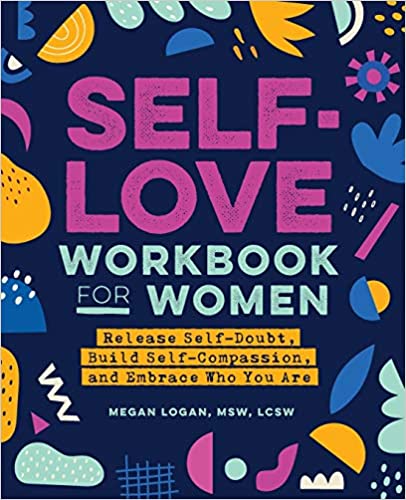
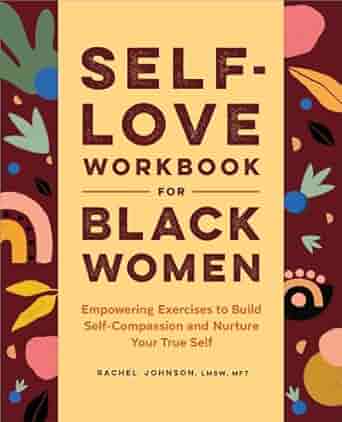
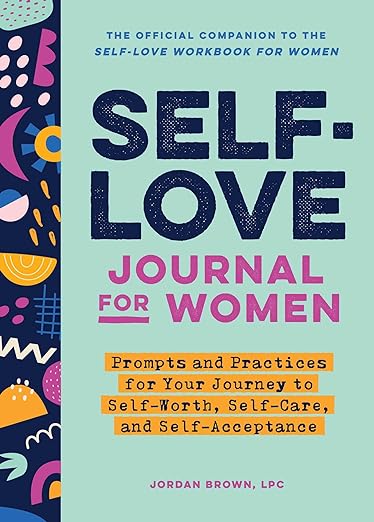
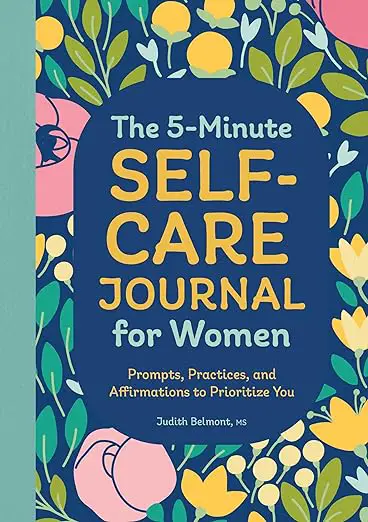

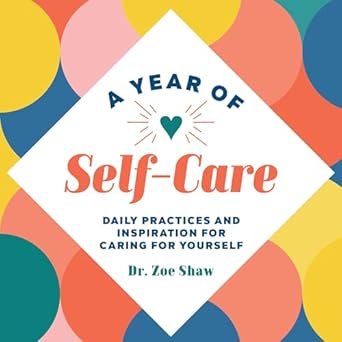
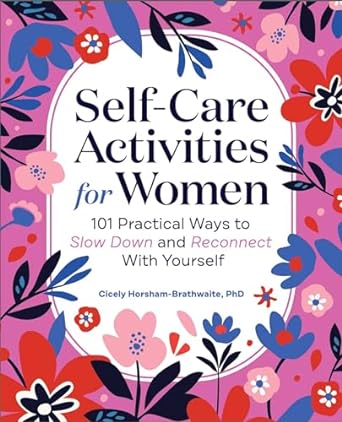







Leave a Reply